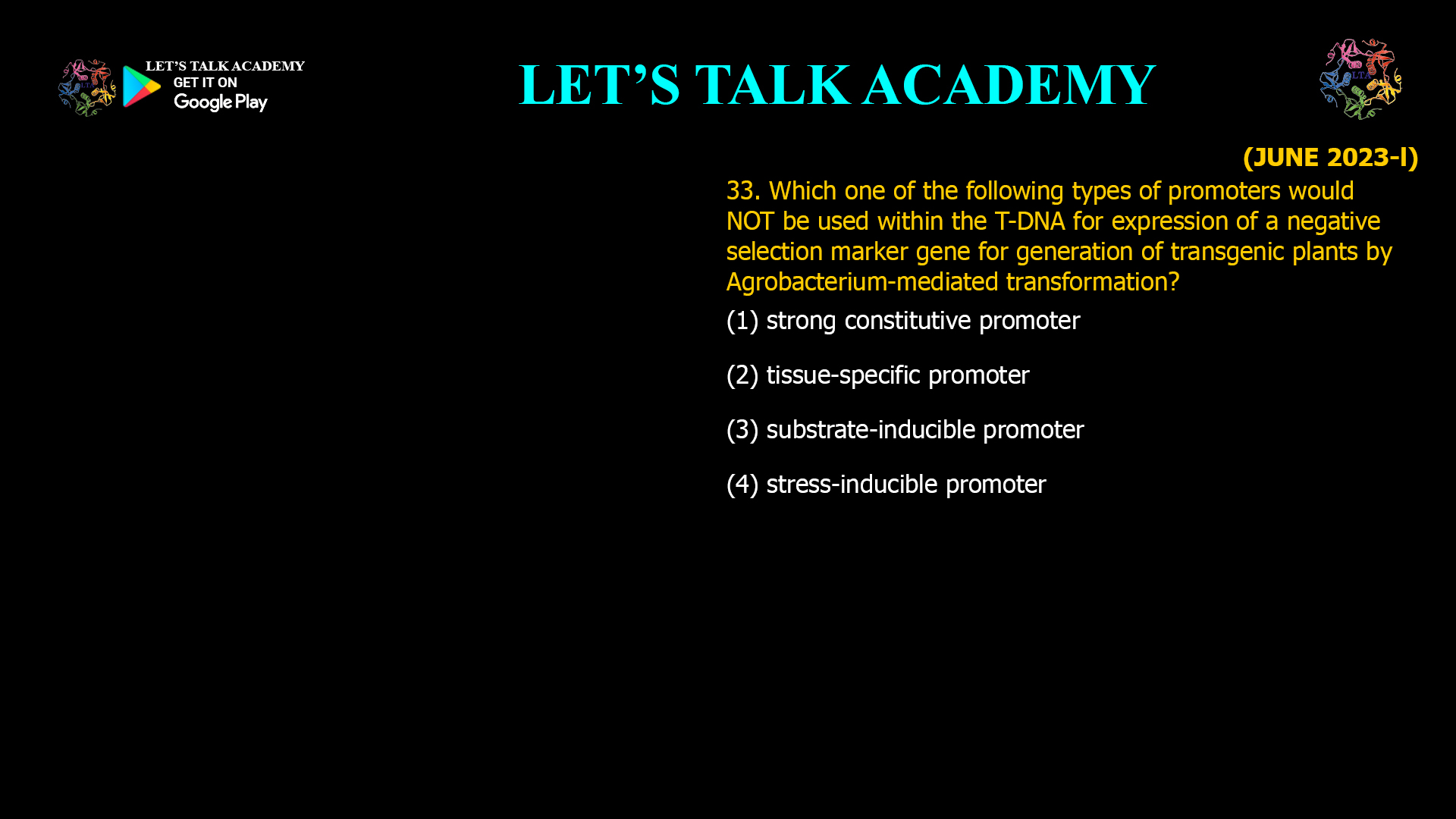- Which one of the following types of promoters would NOT be used within the T-DNA for expression of a negative selection marker gene for generation of transgenic plants by Agrobacterium-mediated transformation?
(1) strong constitutive promoter
(2) tissue-specific promoter
(3) substrate-inducible promoter
(4) stress-inducible promoterThe correct completion is (3) “Some transgenic plants generated may contain partial or truncated versions of the T-DNA.”
Explanation of each option
-
“All transgenic plants generated would show similar levels of transgenic expression” – Incorrect
-
Independent transformants integrate T-DNA at different genomic locations, with different copy numbers and local chromatin environments.
-
These position effects cause wide variation in transgene expression, so uniform expression across all lines is never expected.
-
“The Agrobacterium cells lose the binary vector after the transfer of T-DNA” – Incorrect
-
The binary plasmid has its own bacterial origin of replication and selection marker and is maintained stably in Agrobacterium.
-
T-DNA transfer does not inherently trigger loss of the plasmid; bacteria are routinely reused for further transformations.
-
“Some transgenic plants generated may contain partial or truncated versions of the T-DNA” – Correct
-
During or after transfer, the single-stranded T-DNA can be degraded from its ends or rearranged before integration.
-
As a result, many transformants harbor deletions or truncations within the T-DNA, so not every line carries an intact, full-length insert.
-
“Proteins of the host plant do not play any role” – Incorrect
-
Host plant proteins are crucial for T-DNA trafficking, nuclear import, DNA repair–mediated integration, and chromatin remodeling.
-
Mutations in these host factors significantly alter transformation frequency, proving that plant proteins are essential participants.
SEO‑oriented introduction (for article use)
In Agrobacterium-mediated transformation with binary vectors, T-DNA integrates into plant chromosomes in a somewhat imprecise manner, so different transformants often contain partial or truncated T-DNA copies and show variable expression. In contrast, Agrobacterium does not automatically lose its binary vector after transfer, transgene expression levels are not uniform across lines, and host plant proteins play key roles in T-DNA integration, making option (3) the only correct statement.
-



